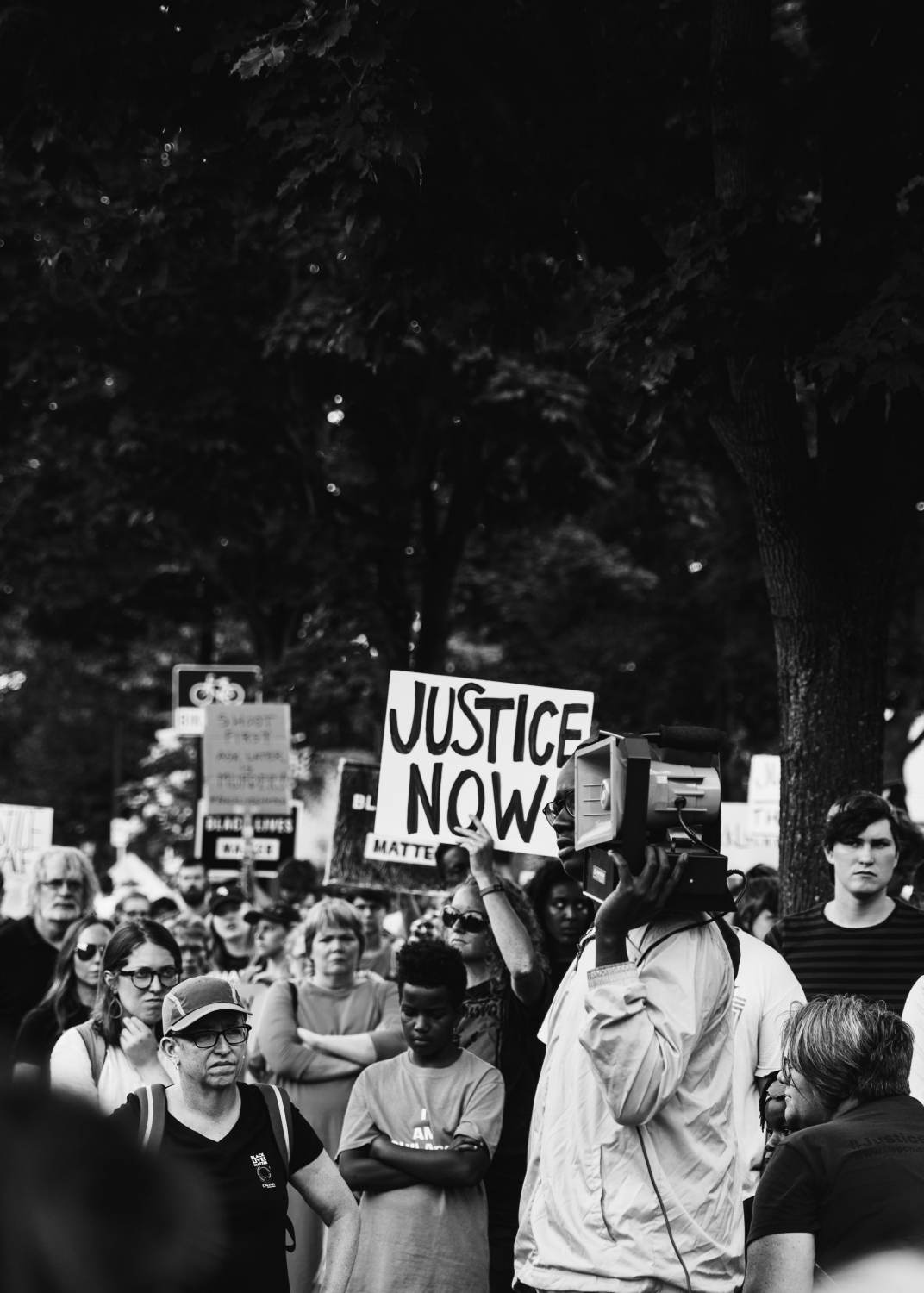8 Steps to Prepare Your Community for a Social Justice Crisis Like Ferguson

As part of #DOCJustSummer, the National Benevolent Association invites you to join us for a conversation to highlight NBA’s justice work within its peer groups. Join us Thursday, July 23 for a conversation with NBA peer group members on the role of these groups in supporting their social justice work in their communities. Register now!
Here are eight simple (and we think accessible) ways for your congregations, projects, organizations to become more prepared for a social justice crisis. This might be overwhelming, but our experience with Ferguson, Charlottesville, and Baton Rouge and now the Coronavirus is proof we need to prepare in advance before a crisis hits our communities. Here are eight simple ways for your communities of compassion and care to become more prepared:
1. Know your community’s data. What are the demographics of your community? Age, race, predominant ethnic cultures, gender identities, socio-economic realities, education levels, needs, and gaps of service s in your community. It will be hard to craft a response when you do not have basic data.
2. Build a trusted relationship with members in your community. The faith community in Ferguson realized that we did not have the trust of the community because we had not been actively and consistently present before situations of crisis occurred. How are community-focused events a regular part of your ministry calendar? We know positive connections and relationships are made when churches work with the community to host neighborhood town halls, or open their buildings to summer school or after-school programming, or to be the places that hospitality is practiced (e.g. community meal events, food and market pantries, or social services are offered).
3. Build trusted partnership and participate with grass roots leaders in the neighborhood. Identify who, in your congregation or community, is working on economic justice, food insecurity, environmental racism, and integrated voter engagement or addressing voter suppression. When crisis situations are made even more dire because of the roots of oppression or injustice, you and your community will already know the justice leaders and organizational partners that you can turn to and partner alongside, as you all develop the right calls of action.
4. Use your moral authority and compass. One of the strengths that faith leaders and faith-based communities provide in times of crisis is our moral commitments, vision, and collective voice. We recommend that you and your community act in collaboration with ecumenical and interfaith partners who, ideally, have a connection and collegiality with you built far in advance before the current crisis.
5. Establish social justice crisis protocols and budgets within the congregation and in church systems such as regions. We encourage advance planning so that protocols and practices are approved by church governance and leadership bodies (e.g. boards, committees, etc.). This planning would include emergency governance procedures so that the organization is not bogged down or waiting to act because of necessary approvals and release of funds.
6. Do your internal anti-racism work now. We suggest you and your church community be trained by our Disciples Reconciliation Ministry. Or, within some regions, there is a regional anti-racism task force/committee that you can ask about training. For some regions, you may actually have to build an anti-racism task force. Plan with your minister or local regional leadership to hold a special assembly focused on issues of anti-racism that would jumpstart a racial justice movement in your church and region. Check out examples here: Upper Mid-West Regions Minister’s Retreat, Mid-America’s Racial Justice Summit. We know that the church, at our best, can model and exemplify what it means to deconstruct and speak together about justice issues in which racism is a root cause.
7. Show up: Do not hide inside the church. Faith communities do everything from joining community actions and protests, to providing sanctuary for activists, to distributing food and water. One night, I found myself directing about 600 protestors who were running from 200 armed police officers. One group of activists took sanctuary in the Jewish synagogue while another group entered the Unitarian Church buildings. These buildings became sanctuaries of safety and community leaders provided hospitality. We ended up trapped inside for over five hours, yet we experienced the tremendous care of the communities that hosted us. We encourage you to determine the actions and responses that are most authentic for your community. Don’t hide, show up.
8. Check out the resources and information available from Disciples Justice Ministries, many of whom have been living and participating in active justice ministry for many years. You are not alone in this call to stand up and show up for your local communities.
Finished with those steps? Check out the justice discernment guide available from Disciples Justice Ministries. Consider becoming a recognized Disciples Justice Church.
Rev. Dr. Dietra Wise Baker serves as the NBA Program Coordinator for Advocacy and Activism.
As the health and social services general ministry of the Christian Church (Disciples of Christ), the National Benevolent Association partners with congregations, regions, general ministries, and a variety of Disciples-related health and social service providers to create communities of compassion and care. Founded in 1887 by six women responding to the needs of the day and on their doorsteps, for more than 130 years the NBA has continued to serve “the least of these.” Learn more at www.nbacares.org.